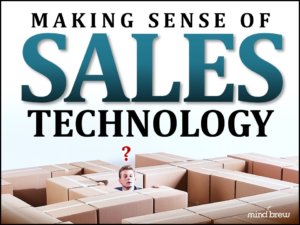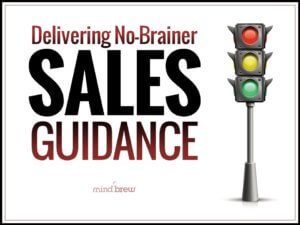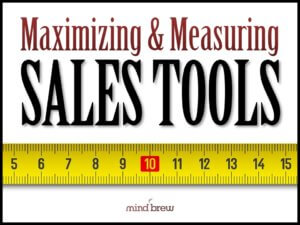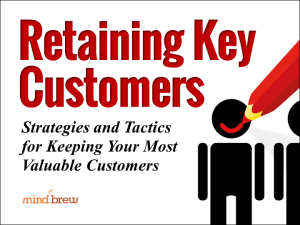As regular readers have likely surmised, SellingBrew Playbook staffers have been following the sales technology space for decades.
When we were practitioners, we used a variety of leading-edge technologies to great effect. Later, as consultants, we worked directly with a number of technology companies to improve their offerings and help their clients with selection, implementation, and adoption. And finally, as analysts here at the Playbook, keeping up with the latest technological developments and innovations has been part of our ongoing mission from day one.
In recent years, we’ve been pleased to witness the advent of what we’ve come to refer to as “smart tools.” In our lexicon, smart tools are tactical execution systems with embedded predictive analytics and artificial intelligence that delivers decision support and optimized recommendations right to the point of need.
One example of this new breed of software solution would be a quoting tool that not only streamlines the mechanics of assembling and delivering complex quotes, but also provides pricing recommendations and up-sell/cross-sell suggestions that are all optimized to the composition of each specific deal.
Another smart tool example would be a next-gen CRM system that not only streamlines the ongoing management and maintenance of customer profiles and interaction records, but also provides each salesperson with data-driven guidance specific to their territory and book-of-business—top prospects, pricing opportunities, defection alarms, recurring sales alerts, high-probability expansion opportunities, and so on.
And of course, most of these smart tools are being delivered as Software-as-a-Service (SaaS) solutions, thus reducing implementation time and hassle, while eliminating the need for significant, upfront capital investments.
It sounds like a cliché, but these smart tools really are game changers. They can do amazing things and generate incredible returns on investment. And as a result, we recommend them wholeheartedly every chance we get.
All that being said, however, smart sales tools are not enough.
After all, you’ll need smart people to champion the tools in the first place. Then, you’ll need smart people to implement the tools, support the tools, and train others on the proper use of the tools. Over time, you’ll also need smart people to monitor the adoption and utilization of the tools and measure their ongoing performance impacts and financial returns.
And while these smart tools will indeed do a lot of the analytical heavy lifting, you still need smart people on your team who can understand and explain the various types of analyses the smart tools are performing.
The point is that these smart sales tools…as sophisticated, capable, and effective as they are proving to be…are still no substitute for smart and knowledgeable sales operations people. Granted, as the tools are providing a tremendous amount of leverage, you may not need as many smart sales ops people as you would otherwise…but you’ll still need smart sales ops people.
Because without smart people to really understand and support a smart tool on an ongoing basis, you’ll likely end up with a “black box” solution that no one understands, no one trusts, and no one uses.
And that wouldn’t be very smart at all.













